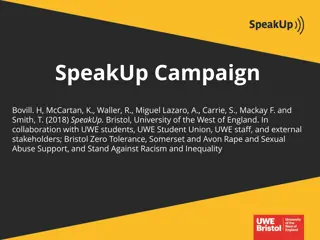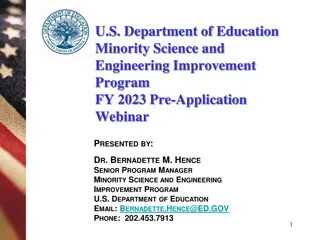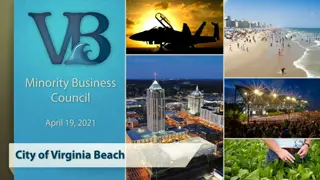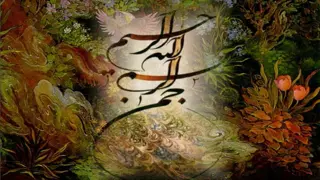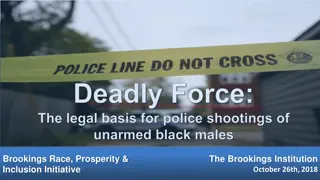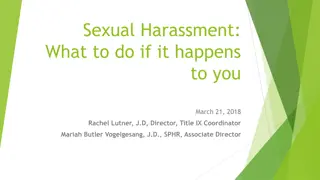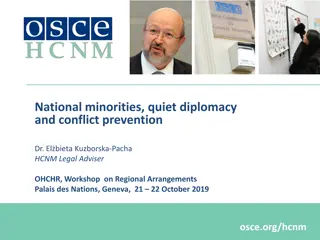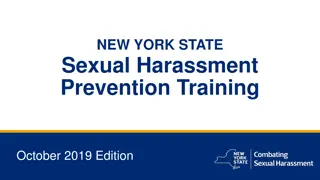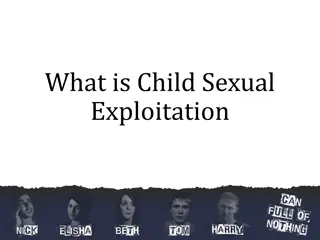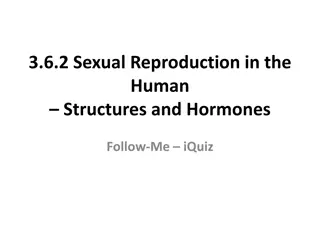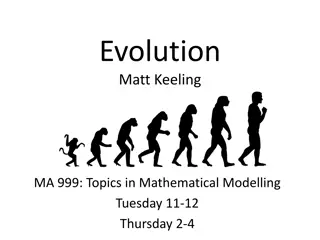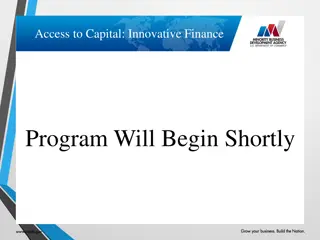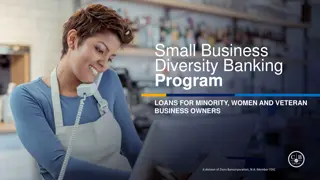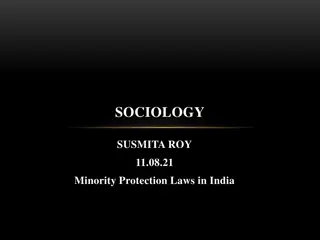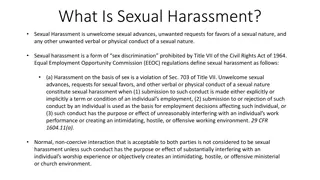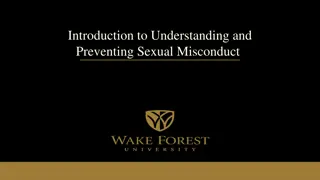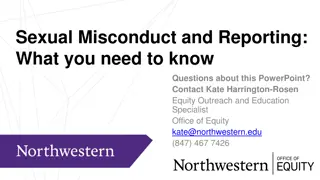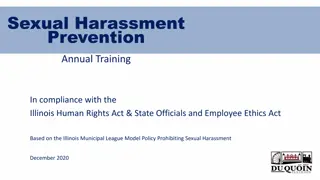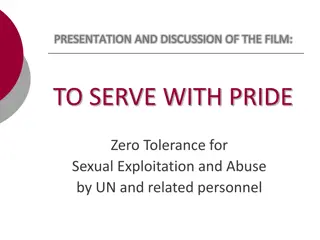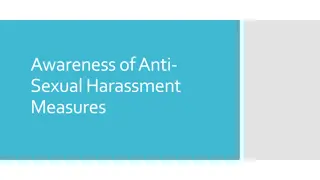Exploring the Labyrinth: Supporting Sexual Minority College Males’ Multiple Identity Development
This presentation delves into the multiple identity development of sexual minority college males, exploring themes like compartmentalizing identities, seeking community, and questioning allegiances. Discover the challenges and experiences faced by these individuals as they navigate their identities.
Download Presentation

Please find below an Image/Link to download the presentation.
The content on the website is provided AS IS for your information and personal use only. It may not be sold, licensed, or shared on other websites without obtaining consent from the author.If you encounter any issues during the download, it is possible that the publisher has removed the file from their server.
You are allowed to download the files provided on this website for personal or commercial use, subject to the condition that they are used lawfully. All files are the property of their respective owners.
The content on the website is provided AS IS for your information and personal use only. It may not be sold, licensed, or shared on other websites without obtaining consent from the author.
E N D
Presentation Transcript
+ Exploring the Labyrinth: Supporting Sexual Minority College Males Multiple Identity Development Daniel Tillapaugh, Ph.D. University of Maine #TLM_ACPA
+CCAPS Continuing Education There is no conflict of interest in this presentation. #TLM_ACPA
+Overview of Presentation Introduction & Welcome Defining Terms Overview of Literature Methodology Findings Implications for Practice & Research Working in the Intersections #TLM_ACPA
+Defining Terms Sexual Minority Male vs. Men #TLM_ACPA
+Overview of the Literature College men and masculinities (Davis & Laker, 2004; Edwards & Jones, 2009; Harris, 2006; Harper & Harris, 2010; Laker & Davis, 2011). LGBT identity development (Berila, 2011; Cass, 1979; D Augelli, 1994; Fassinger, 1998; Tillapaugh, 2012; Wilkerson, Ross, & Brooks, 2009) Intersectionality (Abes, Jones, & McEwen, 2007; Collins, 1990; Dill & Zambrana, 2009; Jones & McEwen, 2000) #TLM_ACPA
+Methodology Constructivist grounded theory (Charmaz, 2006) 26 sexual minority cisgender male participants either juniors, seniors, or recent grads in U.S. or Canadian colleges/universities (2014) & 17 cisgender gay males at three universities in Southern California (2012) Individuals recruited via list-servs, Facebook, Twitter, & Reddit Two in-depth interviews and 11 journal prompt responses #TLM_ACPA
+The Labyrinth Model #TLM_ACPA
+Findings Five main themes: Sense of sameness disappears Compartmentalizing identities Seeking community Questioning allegiances Living in the nexus #TLM_ACPA
+Sense of Sameness Disappears Acknowledging one s sexual minority identity Coming out to others Maintaining hegemonic masculinity Troubling one s privilege #TLM_ACPA
+Compartmentalizing Identit(ies) Mirroring others and the consequences of that Not finding one s self in media images Tension between one s sexuality and other social identities Engaging in posturing behavior #TLM_ACPA
+Seeking Community Campus environments as safe spaces Importance of campus involvement Use of technology Making other sexual minority friends Sexual behaviors and same-sex relationship Immersion into the off-campus LGBT community #TLM_ACPA
+Questioning Allegiances Experimentation and risk-taking Clarifying campus involvement Internal tensions of personal identity #TLM_ACPA
+Living in the Nexus Moving from external to internal influences Feeling secure in one s sense of self and multiple identities Resolving the tensions of one s identities: Identity salience Thinking about the future #TLM_ACPA
+Implications Importance of counter-spaces for LGBT students Self-reflection as critical influence Working toward healthy and positive masculinity for college males Campus environmental differences and the need for understanding campus climate for LGBT students The need for out sexual minority male mentors and role models #TLM_ACPA
+Working in the Intersections Jordan, a White, 20-year-old junior at the University of Washington, is an active student leader on his campus. He serves as a resident assistant, engages in political activism within the Democratic Party, and participates in student government. While he identifies as gay, he feels as those he often is able to pass for being straight, saying I definitely think that my higher level of masculinity might put me into a privilege [sic] higher than another gay man because people don t perceive me as gay as much. He mentions that he does not participate in LGBT campus life beyond his friend group, reflecting that he wanted to avoid the drama he perceived occurred within the on- campus LGBT organization. He mentioned how his resident assistant position has helped him make meaning of his own privilege, which built on an experience during his first year when he attended a friend s presentation on diversity and identity. He commented: mentors) about could play thought that gay easily Since that point, I have engaged with others (students, supervisors, and these intersections. After talking with them, I began to see how intersections larger roles than I had previously thought. For example, I had never really about how being a White, cisgendered, gay man holds power. An example of power is that White, cis, gay men are the face of the gay rights movement and of men in the media .Understanding the intersection of multiple identities was comprehensible to me, and with further reading and engaging with others in conversation in this issue, I learn more and more. #TLM_ACPA
+Working in the Intersections Joshua, a 21-year-old African American gay male, attends the University of Louisiana, Lafayette. Active as a student leader on campus, he has led his campus s LGBT student organization and is actively involved in the Black Journalist Association on-campus. He is completely out on campus and named being asked to perform in drag at a large campus event for students, faculty, and administrators as one of the highlights of his college experience thus far. In his discussions, he shared how experiences of discrimination served as motivation for him to continue being his own authentic self in all aspects of his identities. He recalled a recent experience where an African-American male drove past him walking to campus and yelled fucking faggot. He commented: were were African individuals or gender Did it hurt my feelings? Temporarily. Did I react? No. Here s why: My feelings hurt not only because of the obvious verbal abuse, but mainly because these members of the African American community it always is. Do I believe Americans are more homophobic? I do not. However, I do feel like these see me as a closer representation of who they are than someone who is White otherwise. Therefore, if they are insecure about their sexual orientation or identity, I am nothing but a flesh and bone reminder of who they are on the inside. Continuing on, Joshua stated, My form of activism is living my life, openly and honestly, as a gay black man. Considering how I can count the number of people who do that on one hand , my unapologetic existence is activism enough. #TLM_ACPA
+Sphere of Influence What is one thing that you re taking away from this session that you can put into your own professional practice to support sexual minority males and their multiple identity development on your campus? #TLM_ACPA
+Thank you! Contact me: Dan Tillapaugh daniel.tillapaugh@maine.edu Twitter: @dtillapaugh #TLM_ACPA


